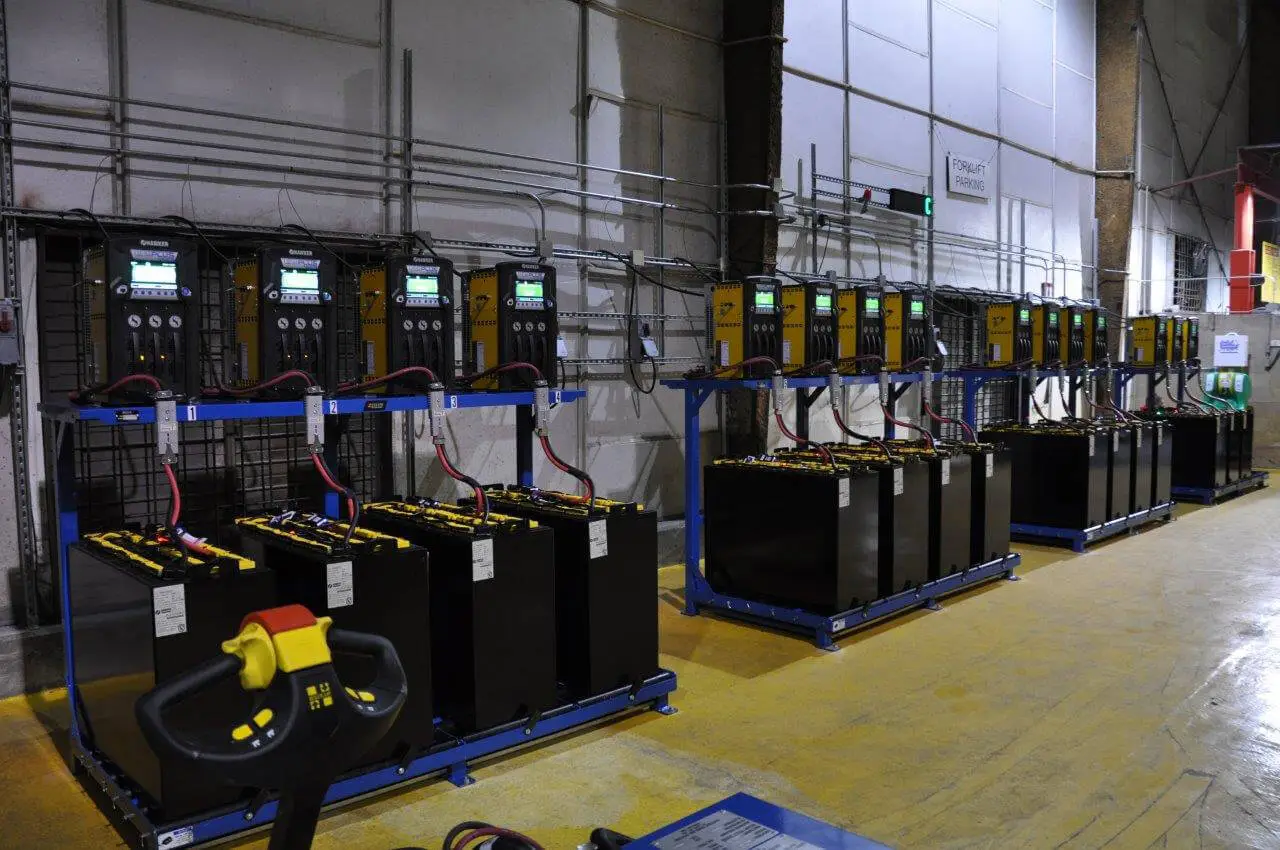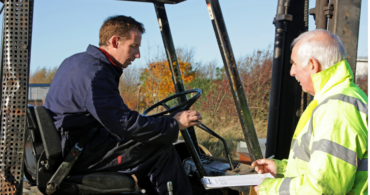That’s a question we hear every day at Texas Motive Solutions, especially when we’re discussing forklift battery charger options with our customers. While it’s helpful to understand what high-frequency chargers do, it’s also important to know that all HF chargers are NOT created equal. When weighing charger options, you’ll want to compare energy throughput, warranty implications, available features and more.
So what the heck is HF anyway?
In general, battery chargers take standard AC power and convert it into DC power, which is then stored in the battery for use. Unlike traditional motive chargers, like ferroresonant, silicon controlled rectifier (SCR) and certain hybrid varieties, high-frequency chargers are simply more efficient.
HF chargers use advanced technology and circuitry to convert power at higher frequencies. This high-frequency process reduces conversion losses, thus enhancing charger efficiencies.
High-frequency battery chargers have a higher power factor than traditional chargers. The power factor, which measures efficiency, ranges between 0 and 1, with 1 being the most efficient. To determine the rating, you compare the power the charger draws to the power the charger uses during charging.
Are HF chargers worth the extra cost? YES
If you’ve priced out HF chargers recently, you probably noticed they typically cost more than traditional forklift battery chargers. However, if your goal is to be able to park the lift and charge during breaks in order to increase productivity during the day, that initial cost will be worth every penny, and your overall gain will be much higher.
Even better, the energy savings achieved by switching from a standard battery charger to a high-frequency charger will pay for the price difference many times over the life of the HF charger. In fact, that’s the primary reason our customers make the switch to HF chargers. You may pay more up front for high frequency chargers, but you will pay a whole lot less in energy costs over time.
On the flip side, different forklift operations do have different goals, and your application may be better suited for an alternative battery charging solution. At TMS, we’re happy to help you analyze your operation and compare options so you can home in on the battery charging solution that fits your needs best.
Know your power availability before weighing HF charger options
When considering HF chargers, input voltage is critical. High-frequency battery chargers were designed to provide high power factors, which means they can’t be modified in the field.
If you order 480 phase, you get 480 phase, and you won’t be able to swap out fuses like you could with your old ferroresonant chargers, should the application call for different voltage. So be sure to find out what your power availability will be before purchasing an HF charger.
Four questions to ask when comparing HF battery chargers
If you’re like most TMS customers, you’re probably less concerned with how HF chargers work and more concerned with how they can improve efficiencies in your operation.
Again, it’s important to keep in mind that all HF chargers are NOT created equal. If you purchase an HF charger at random, you may not reap all of the benefits of high-frequency charging. Even worse, you could jeopardize warranty coverage or end up damaging your batteries and calling us for forklift battery repair. When comparing HF chargers, it’s important to get answers to the following questions:
- What is the maximum battery throughput I can get with this HF charger?
- What are the implications to my battery warranty from using this charger? (You may pay more for certain models but enjoy an extended warranty in some cases.)
- Does this HF charger have multi-volt and multi-amp features, and do those options make sense for my application? (If they don’t, a more basic, less expensive, HF charger may be a better bet.)
- What am I looking to achieve as an end result (i.e., gaining power throughout the shift by capturing charge time during idle time?
All of these factors should be taken into consideration before deciding which HF charger model is the best fit for your forklift operation. Your TMS rep would be happy to walk you through the comparison process. Just ask.
Still scratching your head about HF?
At TMS, we take the guesswork out of choosing HF forklift battery chargers. We also won’t sell you bells and whistles you don’t need. If you would like help figuring out which charger option would be best for you, contact us. Our team would be delighted to analyze your operation and equipment demands and create a customized forklift battery and charging solution to maximize the efficiencies of your forklift fleet and minimize the need for forklift repair.


